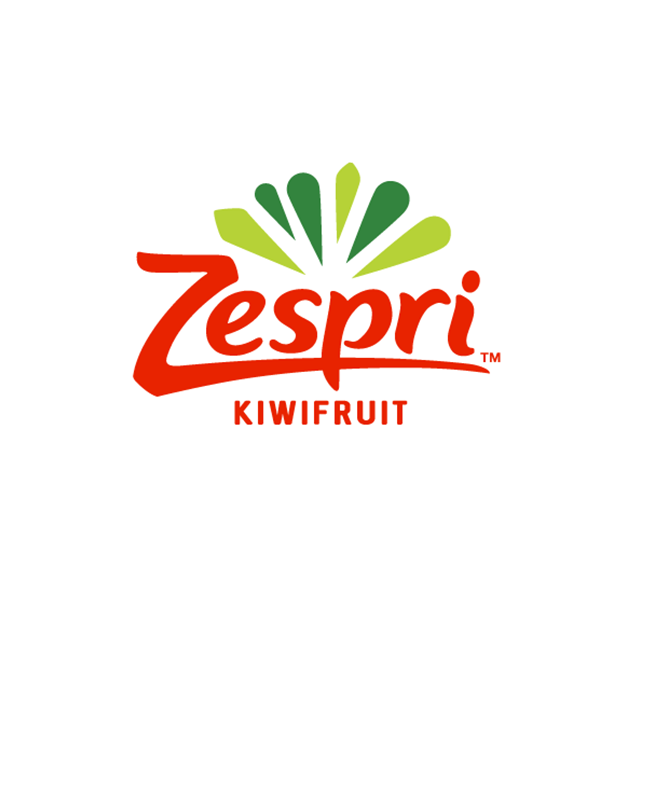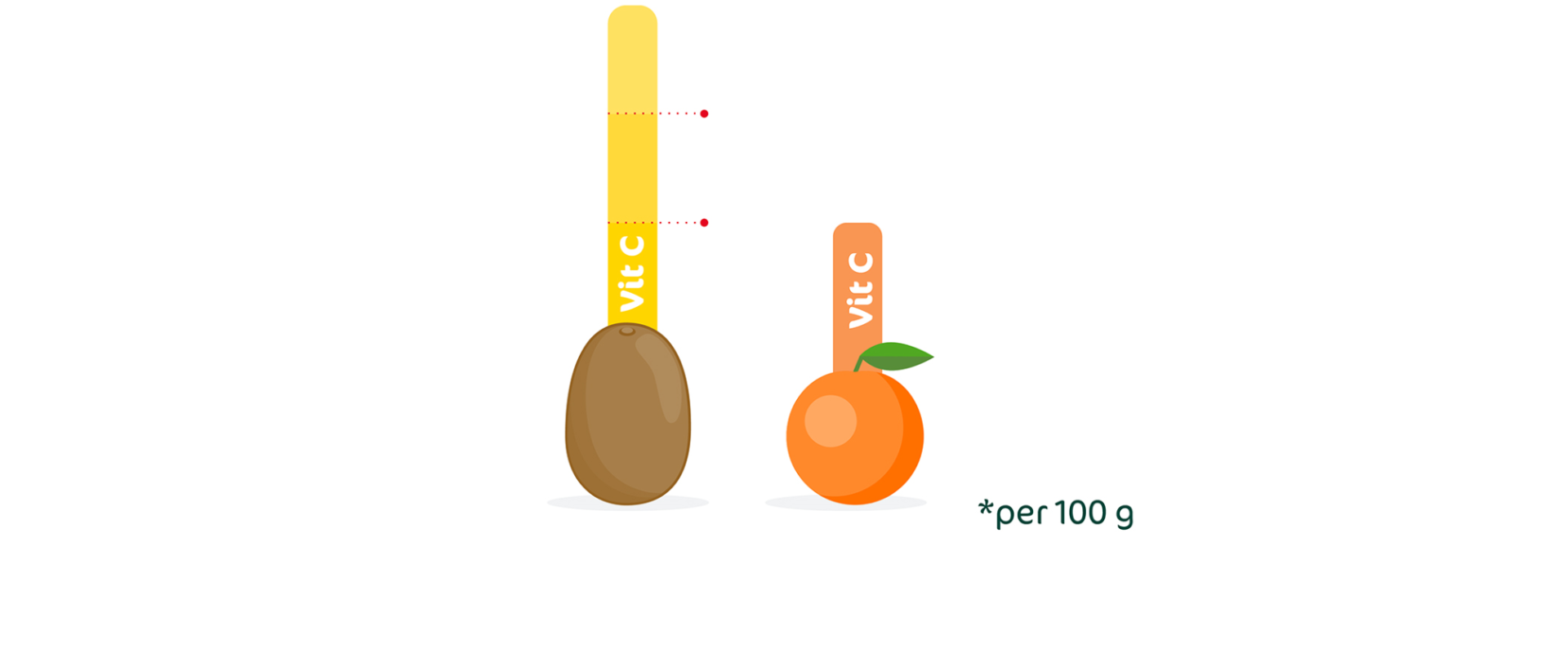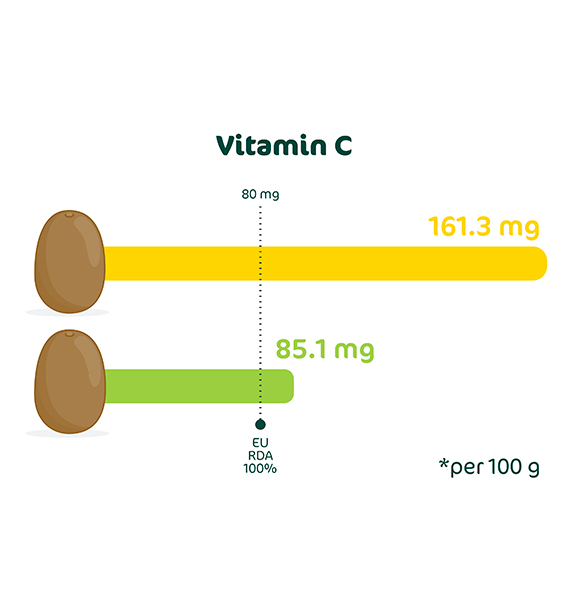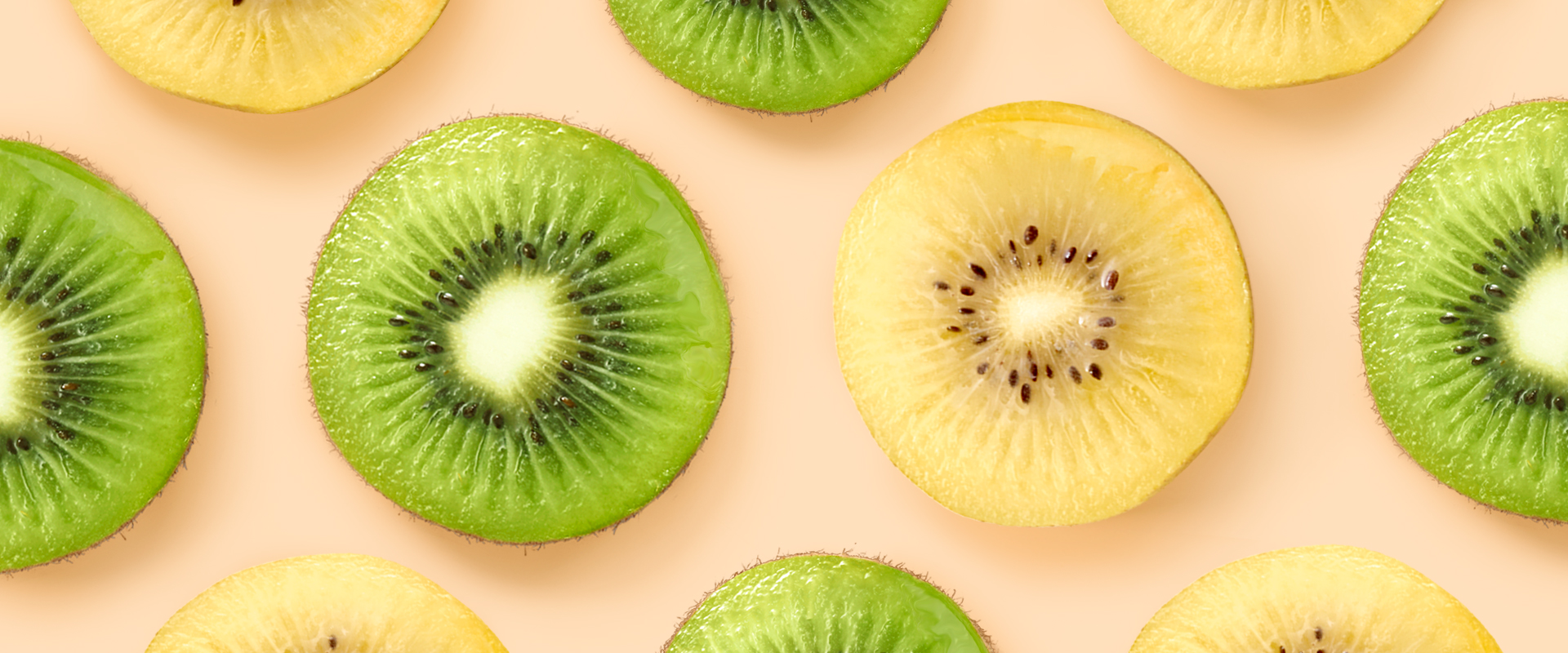How much vitamin C does a kiwifruit contain?
-
Vitamin C
Give this quiz a try!
Question 1: Which do you think has more vitamin C per 100 g: an orange, or a kiwifruit?
Answer: You might not believe it, but it’s actually the kiwifruit!
Already knew that? Then let’s try something a little harder…
Question 2: How much more vitamin C does a Zespri SunGold kiwifruit have compared to an orange?
Answer: Get ready for another surprise: Zespri SunGold kiwifruit contains more than three times the amount of vitamin C found in oranges / 100 g!
Zespri kiwifruit: the vitamin C champion1
So the truth is out – Zespri SunGold kiwifruit is the clear winner in the vitamin C contest, with 161.3 mg of vitamin C per 100 g. But let’s not forget about the refreshing and reliable Zespri Green kiwifruit! They also contain more vitamin C than oranges, with 85.1 mg per 100 g. That means that eating just one Zespri kiwifruit a day can help maintain your required vitamin C levels, since the recommended intake in Europe is 80 mg per day.
Why is vitamin C good for us?
Vitamin C is a bit of a wonder nutrient. As a natural antioxidant, it can help improve vitality levels and fight tiredness and fatigue2. What’s more, having your vitamin C levels topped up daily can work wonders for your skin. This is because the vitamin C found in kiwifruit contributes to normal collagen formation, the substance that helps keep our skin firm and elastic3. What’s more, antioxidants like vitamin C help defend the body’s cells against free radicals.
Top up your vitamin C levels in a flash
Since your body can’t make or even store Vitamin C, it needs to be obtained through the diet on a daily basis2. One of the best ways to give your body a nutrient boost is by whizzing up a delicious fruit smoothie. The Zespri SunGold Vitamin C Vitality Detox Smoothie is made from a delicious blend of kiwifruit – we award it first place for taste!
Sources
- New Zealand Ministry of Health. New Zealand FOODfiles 2014 Version 01. Available from: www.foodcomposition.co.nz/ (accessed 10 January 2017)
- National Institutes of Health. Vitamin C. Available at: https://ods.od.nih.gov/factsheets/VitaminC-HealthProfessional/ (accessed 20 November 2016)
- The International Dermal Institute. Structural changes associated with aging skin. Available from: http://www.dermalinstitute.com/us/library/11_article_Structural_Changes_Associated_with_Aging_Skin.html (accessed 22 January 2017)






